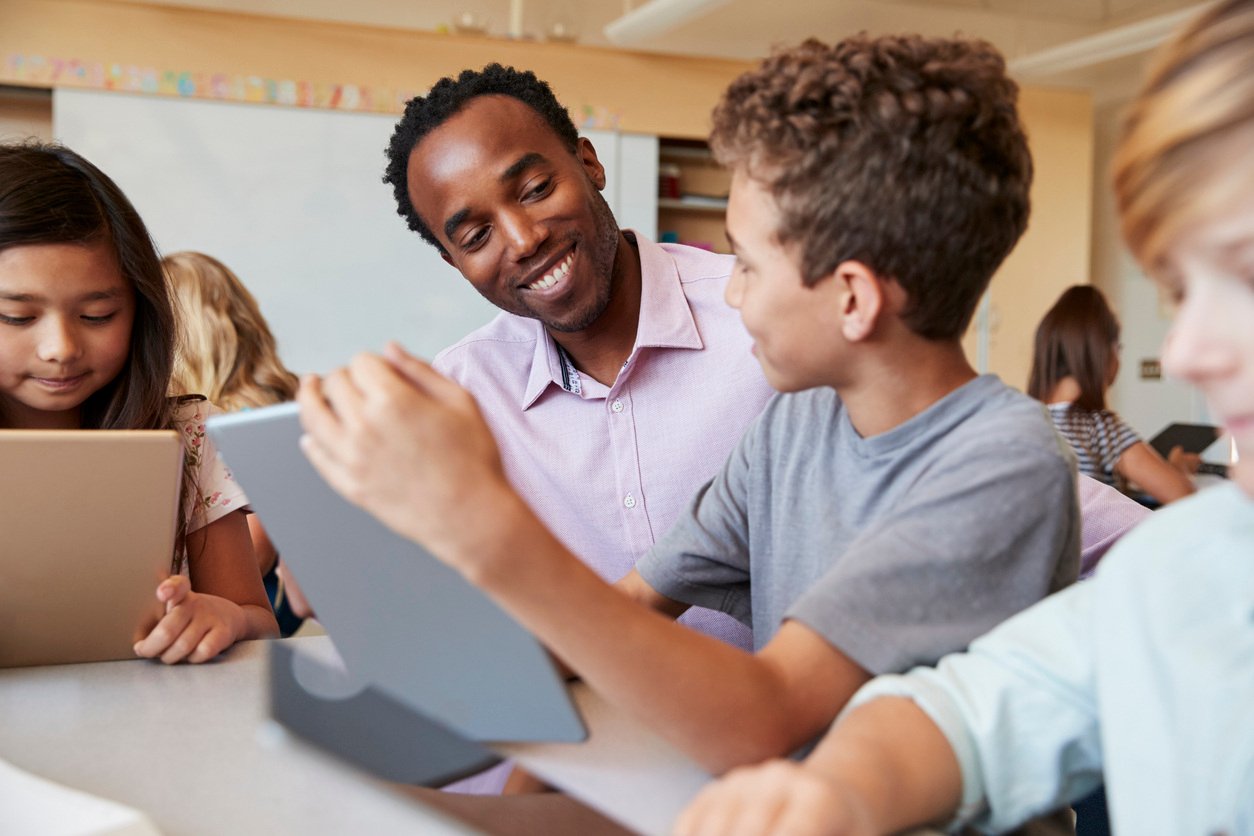Blog
Preventing Youth Substance Use: The Importance of Student-Teacher Relationships
Substance use continues to be a problem affecting millions of American young people. Newer forms of substance use, such as vaping marijuana or nicotine, are on the rise. Interestingly, the outbreak of the global COVID-19 pandemic that hit the U.S. in early 2020 had profound effects on substance use. The annual 2021 Monitoring the Future report noted that there was an “extraordinary” and “atypical” decline in most drug use among youth in 2021.
The modification in education delivery necessitated by the pandemic brought on this change: Most students spent much more time at home and restricted their interaction with friends, resulting in a dramatic decrease in the availability of and access to alcohol and other drugs. Nevertheless, prevalence rates remain unacceptably high for many types of drug use, underscoring the continuing need for ways to prevent and reduce substance use among America’s youth.
Recognizing the Warning Signs of Teen Drug Abuse
Teens who experiment with drugs put their health and safety and their futures at risk. The Mayo Clinic, a health care system with dozens of locations nationwide, has a long history of treating young patients from around the world. The Clinic identifies possible red flags for teen drug use, such as:
-
Sudden or extreme change in friends, eating habits, sleeping patterns, physical appearance, coordination, or school performance
-
Irresponsible behavior, poor judgment, and general lack of interest
-
Breaking rules or withdrawing from the family
-
The presence of medicine containers, despite a lack of illness, or drug paraphernalia in your teen's room
The Importance of Student-Teacher Relationships for Student Health
Teachers, along with parents, are on the front line for noticing children’s behavioral changes. And the teacher-student relationship is crucial for both avoiding and responding to teen drug use. In a study of student alcohol and other drug use conducted by Search Institute during the course of the pandemic, from March 2021 to June 2022, students with high levels of teacher connection and social-emotional support were significantly more likely to use positive coping strategies, rather than drugs, for dealing with COVID-related stress. A developmental relationship with teachers, one that builds this kind of connection and support, has proven effective in helping students find their sparks, build trust and connection, and come to see a positive future for themselves. The framework envisions a relationship where teachers
-
Express Care
-
Challenge Growth
-
Provide Support
-
Share Power
-
Expand Possibilities
This developmental connection creates not only the possibility to intervene effectively when a young person gets involved with drugs but also the environment where he or she finds more positive and fulfilling ways to grow and learn.
Connection and Support Make a Difference
The data speaks loud and clear. High levels of teacher-student connection and regular support make a profound difference in reducing the risk of substance use. The study surveyed 7,612 youth between grades 4 and 12 (58% high school) from 22 communities and found that students with high teacher connection were
-
63% more likely to perceive great risk in alcohol use
-
38% more likely to perceive great risk in tobacco use
-
100% more likely to perceive great risk from marijuana use
-
34% more likely to perceive great risk from misuse of prescription drugs
-
58% more likely to perceive great risk from vaping
Strong teacher connection and teacher support were 121% and 177% more likely, respectively, to help students use positive coping strategies to deal with COVID-related problems and challenges. Positive coping strategies included taking steps to solve COVID-related problems, reaching out to others about their feelings, and trying to think of what they could learn from the pandemic.
Building Trust: The Power of Relationships
Relational connection and social-emotional support help students avoid drug use. Engaged teacher attention during the COVID pandemic was significantly and meaningfully related to students
-
Perceiving more disapproval from parents and friends about using substances
-
Perceiving greater risk from using substances
-
Using substances less
Mentoring is often part of a developmental relationship between teachers and students and has been proven to be effective in keeping students safe and helping them imagine a bright future. A key element of every mentoring relationship is the sense of trust that develops between young people and mentors. Gail Manza and Susan K. Patrick, authors of The Mentor’s Field Guide: Answers You Need to Help Kids Succeed, write that trust is not something that is instantly created. Mentoring and building trust is a process that takes time. “In reality, trust emerges slowly and tentatively from experiences that create the conditions for it.”
Being reliable, consistent, patient, and persistent with young people pays off. It lets them know you care and are there for them to discuss their hopes and dreams, as well as challenges, like substance use, that may get in the way.
Learn more about how teacher connection and support predict less substance use and more positive coping strategies by downloading our ATOD Study fact sheet.



